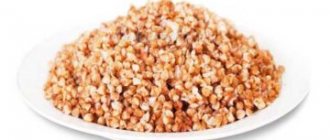There are some types of vegetables that are not recommended for nursing mothers to eat during the first time after childbirth. These are seemingly familiar vegetable crops and root crops - tomatoes, beets, carrots. This opinion is primarily due to their bright natural color, which can provoke allergic reactions in a newborn. But having studied all the beneficial qualities of seasonal vegetables, it is safe to say that carrots are more beneficial than harmful during breastfeeding.
Carrots are beneficial for breastfeeding due to the vitamins and minerals they contain.
What is the beneficial composition of carrots and how many calories does it contain?
Women who have been on a diet at least once know about the low calorie content of carrots. Only 35-40 kcal is contained in 100 grams of fresh crispy vegetables, and even less when cooked. But the composition of the product is really valuable for the body, because carrots contain:
- Vegetable proteins - 1.2 grams.
- Fats - only 0.1 grams.
- Carbohydrates - a little more than 9 grams.
- Fiber - 1.2 grams.
- Ash - 1 gram.
- Pectins - a little more than 0.5 grams.
- Organic acids - 0.2 grams.
- Everything else is water.
This is the chemical composition of carrots based on a 100 gram serving.
It contains the following vitamins (also per 100 grams of product):
- Beta-carotene or vitamin A - 9 mg.
- B vitamins: - thiamine (B1) - 0.06 mg; — riboflavin (B2) — 0.07 mg; — niacin (B3) — 1 mg; — inositol (B8) — about 30 mg; — folic acid (B9) — 8 mg.
- Ascorbic acid, or vitamin C - 5 mg.
- Tocopherol (vitamin E) - 0.6 mg.
The unique composition of chemical elements in carrots makes them useful for consumption at any time of the year, and in addition, the sweet vegetable contains essential oils that are pleasant to taste and smell. From the periodic table in carrots you can find:
- Iron - 0.7 mg.
- Zinc - 0.4 mg.
- Manganese - 0.2 mg.
- Fluoride - 50 mcg.
- Copper - 80 mcg.
- Molybdenum - 20 mcg.
- Iodine - 5 mcg.
- Cobalt - 2 mcg.
Macroelements include:
- Potassium - 200 mg.
- Phosphorus - 55 mg.
- Calcium - a little more than 50 mg.
- Magnesium - about 40 mg.
- Sodium - more than 20 mg.
Orange root vegetable as a risk factor for breastfeeding
The root vegetable is rich in vitamins, for example, it contains:
- vitamins C, B1, B2;
- nicotinic, pantothenic acids;
- salts of magnesium, calcium, sodium, manganese, phosphorus.
The fruit is also rich in biologically active substances, from which carotene, which is responsible for the characteristic orange pigment, should be isolated. And since carrots contain a maximum amount of it (four times more than a tomato), it is the excess of this substance that negatively affects the health of the mother and baby. The consequences of an overdose are allergies and carotenemia.
Beneficial properties for women breastfeeding
Such a useful composition cannot but ensure the leading position of the product in the diet for every lactating woman. The positive effects of carrots are as follows:
- beneficial effects on the functioning of the heart and vascular system, prevention and treatment of heart diseases;
- normalization of hemoglobin levels and elimination of signs of anemia;
- positive effect on the kidneys and liver;
- adding shine to hair, strengthening nails and improving skin condition;
- normalization of the gastrointestinal tract and acidity;
- wound healing, analgesic and anti-inflammatory effects, used as an antiseptic. In addition, carrots eliminate and remove worms, bile, and can be used as an expectorant and anti-sclerotic agent;
- reduction of “chronic” fatigue syndrome, reduction of fatigue;
- preventing toxic effects on the body when taking antibiotics;
- increasing immunity and strengthening women's health in general;
- effects on vision;
- strengthening the skeletal system and tissues;
- stimulation of brain activity;
- restoration of hormone levels;
- It is worth noting the healing properties for diseases associated with the lungs - bronchitis, asthma, tuberculosis or pneumonia.
Carrot juice has long been famous for healing affected areas of the skin from burns, frostbite, and festering wounds. The fresh vegetable and its juice were even used to treat cancer and resolve ulcers.
Benefits of carrots
The essential components in this food product complement mother's milk and have a positive effect on both women's and children's bodies:
- plant fibers have a positive effect on the digestive function of the new mother and prevent constipation;
- beneficial microflora develops in the gastrointestinal tract;
- toxins and “bad” cholesterol are eliminated;
- vitamin B5 takes an active part in carbohydrate-fat metabolism, it is extremely important for the process of obtaining polyunsaturated fatty acids, iron-containing protein and other key components;
- the product prevents age-related blindness and generally has a beneficial effect on visual functions;
- prevents premature aging of the body due to the content of polyphenols;
- The root vegetable is low in calories, so ladies who want to lose extra centimeters on their waist after childbirth can eat it without harming their figure.
Vitamins and microelements contained in carrots
Carrots are an almost ideal set of vitamins, micro- and macroelements. This is one of the healthiest vegetables that can be consumed all year round.
In terms of vitamin composition, the root vegetable rightfully occupies one of the leading positions among all vegetables. Beta-carotene helps maintain the functioning of the pulmonary system. Vitamin A has a beneficial effect on the retina. The product also contains vitamins such as B1, B2, PP, B8, C, folic acid, and tocopherol (E).
Microelements in the composition: aluminum, boron, vanadium, copper, fluorine, chromium, selenium, etc. Macroelements: potassium, chlorine, phosphorus, magnesium, calcium, sodium, sulfur. The glycemic index averages 47, it directly depends on preliminary food processing or lack thereof.
Carrots are a low-calorie fruit (about 35 kcal per 100 grams). If you boil it, the calories will be much less.
4 beneficial properties of carrots for a young mother
The benefits are as follows:
- the product contains phytoestrogens, which help to quickly cope with lochia that accompanies a woman for some time after childbirth;
- is a source of many vitamins and minerals that participate in metabolic processes and improve the condition of tooth enamel and the skeletal system;
- restores digestive function in women in labor suffering from constipation;
- includes falcarinol, which has an antifungal effect and prevents candidiasis after delivery.
Possible harm from eating carrots
When a woman drinks too much carrot juice, her skin may turn yellow. This is due to the fact that the body receives an excess amount of carotene, due to which the vegetable has such a shade. If you drink more than a liter of the product per day, you may find that your skin turns orange. Carotene jaundice is not as safe a condition as it might seem at first glance.
The effect of carrots on lactation
The vegetable is an important element of a healthy diet for a nursing mother. During the period of breastfeeding until the very moment of its end, the female body is in dire need of the substances included in the product. If they are deficient, all valuable components are taken from the cells of the new mother. However, the direct effect of vegetables on the process of milk formation and increasing the level of lactotropic and other hormones has not been scientifically proven.
Possible effect on the baby
Carrots can have a harmful effect on a child’s body:
- provoke allergic reactions;
- cause colic and other digestive problems due to the high fiber content.
Colic
Digestive problems in a child associated with the mother's consumption of carrots are rare. In most cases, this is due to the underdevelopment of the gastrointestinal tract in the newborn and the lack of essential enzymes. As a rule, upon reaching one year of age, children normally absorb the product and no longer suffer from allergy symptoms.
It is important to remember that unscrupulous sellers treat products with nitrates, which subsequently end up in breast milk. Symptoms such as abdominal pain, vomiting, fever, and indigestion may indicate carcinogen poisoning.
Allergy
Eating carrots by a nursing mother can lead to an allergic reaction in the baby. A few important points:
- the woman should carefully monitor the baby and determine whether allergy symptoms actually appear specifically to this product;
- there is no cause for concern if the baby has clear skin and normal, regular bowel movements;
- if symptoms indicating an allergy appear, you should keep a food diary and exclude vegetables from your diet;
- if you refuse root vegetables and symptoms of intolerance to the product persist, you need to pay attention to other foods that the woman eats;
- If the allergy really bothers the child, you need to switch to a special diet.
Allergy symptoms in infants:
- rash on the face and body;
- causeless runny nose;
- red, watery eyes;
- swelling of the face and lips;
- vomiting, diarrhea and other digestive disorders.
Pediatricians' opinion on the consumption of carrots by nursing mothers
Doctors recommend eating vegetables in any form: boiled, stewed, fresh. Carrot juice has no less valuable properties. The product is indispensable for a young mother because:
- prevents age-related blindness;
- restores the functioning of the pancreas
- improves lactation in combination with other products;
- reduces the risk of harmful microflora;
- eliminates constipation;
- creates a balance of cholesterol in the body;
- is an antioxidant;
- promotes rapid healing of wounds, cuts and other mechanical damage to the skin;
- improves the condition of the skin, hair and nail plates;
- reduces blood pressure;
- inhibits premature aging;
- is an effective means of preventing stress and depression.
How can carrots harm a child?
The reaction of the body of each individual child to a particular product may be ambiguous. Moreover, carrots themselves are considered a potential source of allergies. In addition, a vegetable that is healthy for mom can cause indigestion in the baby. If a breastfeeding woman nevertheless dares to try carrots, then over the next few days after the first try, you need to carefully monitor the newborn. After all, the reaction can manifest itself in completely different ways - from a rash to peeling skin in the cheek area. In addition, diaper rash, stool disturbances, and increased regurgitation are possible. If any symptoms appear during this time, then the mother should stop eating carrots and return to testing after a few months, but eat the vegetable boiled first.
As a rule, an allergy to carrots in a baby when consumed by a nursing mother occurs if the mother also had it previously.
A similar reaction occurs with many children due to the fact that the substances lycapin and anthocyanin, contained in brightly colored vegetables (red tomatoes, orange carrots), are perceived by the body as foreign, since it simply does not produce such substances and does not know how to react to them, which in some cases provokes allergies. But not all children have it. In addition, an allergy may be caused not by the vegetable itself, but by the nitrates or fertilizers it contains, which depends on the region and place where the fruit grows.
Potential harm to baby and mother
Carrots are not an exotic vegetable and are quite often present on the table as part of certain dishes. It rarely causes allergic reactions in children, but intolerance to the root vegetable still occurs. Sometimes this is due to the immaturity of the baby's digestive tract and the lack of necessary enzymes. In this case, the child may experience intestinal colic and stool upset. Usually, by the age of one year, children already perceive such foods normally, and such symptoms no longer occur. In rare cases, an allergic reaction to carrots is genetically determined, that is, a baby has a congenital intolerance to this vegetable. This is expressed by redness of the skin, rashes, and looser stools. There may even be swelling of the mucous membranes of the nose, swelling of the eyelids and lips. If your baby develops any symptoms indicating intolerance to carrots, you should stop eating the root vegetable and contact your pediatrician.
Individual intolerance to carrots often provokes intestinal colic in a child
Unfortunately, sometimes due to the fault of unscrupulous producers, carrots contain large amounts of fertilizers, including nitrates. These substances, entering the mother’s body, can also pass into breast milk. They have a toxic effect on humans and are carcinogens. Their high concentration leads to disruption of the absorption of vitamin A and interferes with the functioning of the thyroid gland, heart and central nervous system. Some nitrates are converted into nitrites (salts of nitrous acid), which block cell respiration by binding hemoglobin. At the same time, the content of cholesterol and lactic acid increases. The likelihood of poisoning with nitrates present in vegetables may be indicated by abdominal pain, loose stools, nausea, vomiting, and fever.
In carrots, an excess of nitrates can be indicated by a light, almost white core, since it contains up to 90% of harmful substances. There are fewer toxic substances in the root shell, but there are more of them in the top, as well as in the tops themselves. In shredded carrots, nitrates quickly turn into nitrites.
To avoid such troubles, it is advisable to purchase vegetables either in trusted stores or after reading the proper documentation about the quality of the product. At home, you can use a nitrate tester - a device for measuring the nitrate content in vegetables and fruits.
What rules should be followed when introducing fresh carrots into the menu during lactation?
To begin with, carrots during breastfeeding should appear in the diet no earlier than after the third week from the day of birth. Until this time, the baby’s digestive processes are not yet ready to accept such foods. They try boiled or stewed carrots and only a small portion - a quarter of a whole carrot. It is advisable that this meal occurs in the morning or lunchtime.
The daily vegetable intake for a nursing woman is 2 medium carrots, with a total weight of no more than 300 grams. This portion can be eaten already on the fifth day of introducing the product into the nursing menu. But only with a positive perception by the baby and gradual introduction.
It is better to try the vegetable fresh a month after birth. And the rules for introducing a fresh ingredient are the same as for boiled ones - gradually, in the morning and depending on the baby’s reaction.
Unlike ripe fruit, carrot juice is more concentrated. You need to try it diluted and just a couple of small sips.
How to store and select
Equally important is the correct choice of vegetable. First of all, you need to pay attention to:
- Root integrity. There should be no highly visible cracks or chips.
- It is necessary to choose a root vegetable that is small in size, with smooth and fresh-looking skin.
- The carrots should be smooth, not wrinkled. Fresh carrots appear in mid-summer.
- No putrid odor or signs of spoilage.
Store in a dark, well-ventilated place. It is important that the sun's rays do not penetrate into the room. If the carrots are pre-washed and dried well, then their shelf life increases.
Special recommendations for eating carrots
You can try raw carrots after a month, but it is better not to eat them in their pure form for at least a couple of months after giving birth. You can add carrots to a salad or soup, prepare a casserole or puree, that is, eat a thermally processed vegetable. In its pure form, a large portion of carrots is quite difficult for the body to digest.
Also, we should not forget that carrots are a fat-burning product. That is, to obtain all the nutritional properties, a healthy vegetable should be eaten with fat-containing ingredients - dairy products, sour cream or oil (vegetable).
For better absorption by the body, carrot salad should be seasoned with vegetable oil, sour cream or yogurt.
To protect your body from the effects of nitrates, it is better to eat carrots from your own garden or purchased from a trusted place. When choosing, you should focus on the color of the fruit - it should be bright enough, the size - medium, and integrity - without cracks or cuts. Moreover, you should not buy a product with traces of rot or rodent bites.
How often is consumption of boiled carrots recommended during lactation?
In everyday life, every housewife adds carrots to soups, uses them as a stir-fry or as a seasoning, and every family eats them several times a day. But a nursing woman needs to slightly reduce such volumes and eat healthy root vegetables in limited quantities, but also at least three times a week. Freshly harvested crops will perfectly replenish the supply of useful microelements in the female body. You can eat a little boiled carrot almost every day. Since after undergoing high-temperature treatment the vegetable is no longer so aggressive, some of the vitamins disappear, but the bulk still remains.
Boiled carrots do not contain much beta-carotene, so they are allowed to be eaten more often than raw ones.
Contraindications
And yet there is a risk group limited in the use of this largely medicinal root vegetable :
- This includes people who smoke, since in combination with nicotine, beta-carotene converted into vitamin A is a direct threat of lung cancer.
- The root vegetable should be consumed with caution during periods of exacerbation of gastric and duodenal ulcers.
- Carrots are also contraindicated for people with individual intolerance.
From the articles of our experts, you will learn whether it is possible to eat carrots at night and if you have diabetes, as well as the benefits and harms of the root vegetable for women and men.
Carrot juice during breastfeeding
Freshly squeezed carrot juice will help you replenish your supply of vitamins and recharge your energy. It is better if it is prepared with your own hands, since the purchased product is often saturated with unnecessary preservatives and chemicals, and is also subject to pasteurization, which kills some of the beneficial substances.
When breastfeeding, carrot juice is consumed both in its pure form and various vegetables and fruits are added to it. A good alternative to compote would be a glass of carrot juice with the addition of apple, pumpkin, and beet juice. Also, when preparing juice, add herbs or a fruit mixture. A spoonful of honey will help diversify the drink, but only if the product is already present in the mother’s diet and does not cause digestive problems for the baby. At the same time, you should not exchange tea, which mom can afford for dessert with sweets, for carrot juice, since flour products will interfere with the absorption of nutrients.
How do carrots affect milk production?
Carrots are useful not only for most body systems, but also for normalizing the level of sex hormones in a woman. Eating carrots helps to quickly restore strength after childbirth, saturates the body with vitamins and microelements, and maintains a normal emotional background. This means that if a nursing mother has difficulty producing milk, is nervous and worried, then the nutrients in carrots will help correct the situation. In addition, the root vegetable contains a lot of water, and additional liquid only promotes lactation.
Lactation dish made from carrots diluted with milk
Ingredients for cooking:
- carrot - 1 piece;
- milk or cream - 1 glass.
Peel the raw carrots and grate them using a large grater. The resulting mass (3 or 4 tablespoons) is poured with milk (cream). Drink in portions, half a glass several times a day. The greatest effect can be achieved if you drink the drink warm and half an hour before the next feeding of the baby. To diversify the taste and add sweetness, you can add honey.
When can a nursing mother eat carrots?
In the first month after the birth of the baby, it is better for the mother to refuse carrots in any form. Then you can slowly try the boiled root vegetable, but not more than 50-100 grams. To find out whether a nursing mother can eat more carrots, a woman should start keeping a food diary. This way she will be sure whether the baby has a reaction to the vegetable she ate. If everything is in order, then you can eat the vegetable at your usual pace.
It is recommended to introduce raw orange root vegetables from 3-4 months of breastfeeding.
Healthy carrot dishes
It is clear that boiled carrots every day are quite bland and monotonous. Therefore, nursing mothers share their favorite recipes and add more and more new recipes to their menu. In this case, carrots can act as both the main ingredient and be part of tasty and healthy dishes with other ingredients.
Carrot casserole
Products you need:
- carrots - half a kilogram;
- egg - 1 piece;
- semolina - three tablespoons;
- sugar - a heaped tablespoon;
- butter - 20 grams;
- apple - 1 piece;
- a little salt.
Boil the carrots in their skins and peel them. Grind the boiled vegetable until pureed. Grate the peeled apple or chop it in a blender. Beat the egg mixture with sugar, add all the remaining ingredients and the prepared puree. Pour the resulting mass into a pre-greased mold, put a few pieces of butter on top and bake in the oven at 180 degrees for about 40 minutes.
Carrot salad with fruits
Products you need:
- carrot - 1 piece;
- apple - 1 piece;
- tangerine - 1 piece.
Grind raw carrots and apples, cut tangerine slices in half. Mix the ingredients. You can dress the salad with yogurt or low-fat sour cream. Add honey and nuts if desired. You can eat such a healthy salad after three months of feeding.
Carrot and vegetable puree soup
Products you need:
- carrots - 3 pieces;
- potatoes - 2 pieces;
- half an onion;
- greenery;
- salt.
All products are boiled, the broth is drained and filtered. Boiled vegetables, herbs and broth are ground in a blender. Place in portions on plates, salt and sprinkle with herbs. For decoration, some carrots can be cut into slices and placed on the soup.
The beneficial qualities of carrots are many times greater than the possible negative manifestations in a baby. And, as a rule, allergies in a baby can only be expected if the nursing mother herself is susceptible to allergic reactions. In all other cases, eating carrots for a woman who is breastfeeding will only bring benefits.











